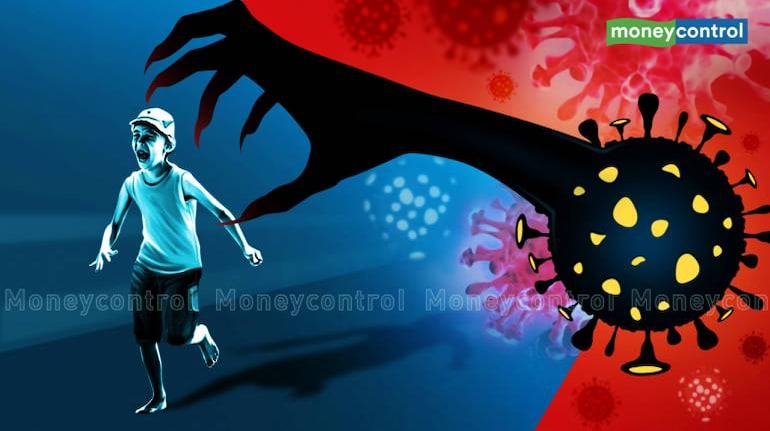



The severe outbreak of COVID-19 in Delhi this year showed that the Delta variant of SARS-CoV-2 can infect previously exposed people through a different variant of the coronavirus, highlighting the challenges of reaching herd immunity against the variant, according to an international team of scientists.
The study, published in the journal Science on Thursday, also found that the Delta variant was between 30-70 percent more transmissible than previous SARS-CoV-2 lineages in Delhi.
Since the first case of COVID-19 was detected in Delhi in March last year, the city experienced multiple outbreaks, in June, September and November 2020.
The situation became worse in April this year, when daily cases increased from approximately 2,000 to 20,000 between March 31 and April 16.
This was accompanied by a rapid rise in hospitalisations and ICU admissions, severely stressing the healthcare system, with daily deaths spiking to levels three-fold higher than previous waves.
The study authors noted that Delhi's overall seropositivity was reported to be 56.1 percent which was expected to confer some protection from future outbreaks through herd immunity.
Herd immunity is a form of indirect protection from a disease that can occur when a sufficient percentage of a population has become immune to an infection.
The latest study used genomic and epidemiological data, together with mathematical modelling, to study the outbreak.
The work was led by the National Centre of Disease Control and the Council of Scientific and Industrial Research-Institute of Genomics and Integrative Biology (CSIR-IGIB) in New Delhi with collaborators from the University of Cambridge and Imperial College London, UK, and the University of Copenhagen, Denmark.
"The concept of herd immunity is critical in ending outbreaks, but the situation in Delhi shows that infection with previous coronavirus variants will be insufficient for reaching herd immunity against Delta," said study co-author Professor Ravi Gupta from the University of Cambridge.
"The only way of ending or preventing outbreaks of Delta is either by infection with this variant or by using vaccine boosters that raise antibody levels high enough to overcome Delta's ability to evade neutralisation," Gupta added.
To determine whether SARS-CoV-2 variants were responsible for the April 2021 outbreak in Delhi, the team sequenced and analysed viral samples from Delhi from the previous outbreak in November 2020 until June 2021.
They found that the 2020 outbreaks in Delhi were unrelated to any variant of concern.
The Alpha variant, first identified in the UK, was identified only occasionally, primarily in foreign travellers, until January 2021, according to the researchers.
Alpha increased in Delhi to about 40 percent of cases in March 2021, before it was displaced by a rapid increase in the Delta variant in April, they said.
Applying mathematical modelling to the epidemiological and genomic data, the researchers found that the Delta variant was able to infect people who had previously been infected by SARS-CoV-2.
The researchers noted that prior infection provided only 50-90 percent of the protection against infection with Delta variant that it provides against previous lineages.
"This work helps understand the global outbreaks of Delta, including in highly vaccinated populations, because the Delta variant can transmit through vaccinated or previously infected people to find those who are susceptible," said Anurag Agrawal from CSIR-IGIB, senior author and co-lead investigator of the study.
To look for actual evidence of reinfection to support their modelling work, the researchers examined a group of people recruited by CSIR.
In February, 42.1 percent of unvaccinated subjects participating in the study had tested positive for antibodies against SARS-CoV-2.
In June, the corresponding number was 88.5 percent, suggesting very high infection rates during the second wave of the outbreak in the country.
Among 91 subjects with prior infection before Delta, about one-quarter (27.5 percent) showed increased levels of antibodies, providing evidence of reinfection.
When the team sequenced all the samples of vaccination-breakthrough cases at a single centre over the period of the study, they found that among 24 reported cases, Delta was seven-fold more likely to lead to vaccination breakthrough infections than non-Delta lineages.
Discover the latest Business News, Sensex, and Nifty updates. Obtain Personal Finance insights, tax queries, and expert opinions on Moneycontrol or download the Moneycontrol App to stay updated!
Find the best of Al News in one place, specially curated for you every weekend.
Stay on top of the latest tech trends and biggest startup news.